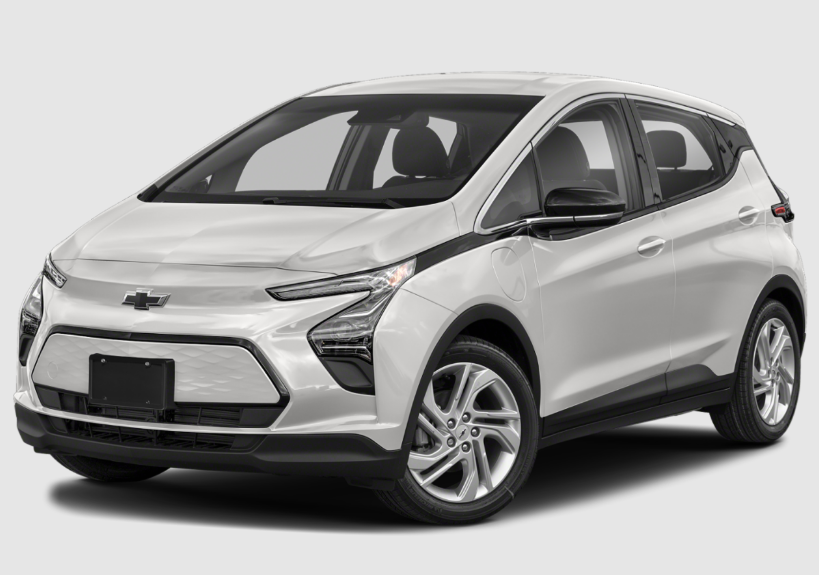Table of Contents
2023 Chevy Bolt EV is rumored to not get a lot of touches. However, there is an insistence that the car is powered by electricity and gas.
The 2023 Chevy Bolt EV is an electric hatchback with a small and simple size. From end to end, this hatchback is a reflection of standard Chevrolet design with high performance. The thing that’s highly rated in the 2023 Bolt EV may not be its full appearance, but its capacity as the first electric car at an affordable price to beat the Tesla Model 3 on the market.
2023 Bolt EV to Mach Tesla Model 3
We will look forward to the release of the second-generation Chevy Bolt EV on the market in 2023. Until then, we can guess what will be updated, upgraded, or replaced from the first generation Bolt. The first-generation Bolt rocked the American market a bit before being eclipsed by Tesla’s Model 3, which came with an elegant look, more options, and a significant price tag. Although in the end the Model 3 did not win the Car of the Year award in 2018 despite being one of the finalists. However, we can be sure it looks more tempting than Bolt, said the buyers.
ALSO READ: 2022 Chevelle
2023 Bolt EV Specs
Chevrolet certainly doesn’t want this to happen again, defeated by Tesla and other competitors. Therefore, Chevrolet started its mission to make an overhaul. The size of the 2023 Bolt EV is not expected to change from the 2022 Bolt, although the display is slightly wider. It is also roughly the same size as Hyundai’s 2022 Kona.
The luggage size is 0.3 cubic feet smaller than the 2022 Bolt’s luggage, which is 16.9 cubic feet. The separate 60/40 passenger seat area has also changed to 57.0 cubic feet. 2023 Bolt EV loses to Kona in terms of the luggage area, but it wins in terms of the passenger seat area.
Chevrolet will continue to work on polishing the basis of the 2023 Chevy Bolt EV. The pressure does not only come from its competitors but also from customers. They asked for a hatchback with electric and gas power. The battery that will be implanted in it is a 65 kWh lithium-ion. This battery is estimated to be able to cover a distance of 259 miles on a single full charge.
Level 2 charging capability will also be included in the standard Bolt EV installation. This makes the new dual-level charging cable a package in the Bolt EV. The cord has a quick-adjustable plug for a 110 or 240-volt outlet. This special cable can cover a distance of 100 miles for 30 minutes of charging.
2023 Bolt EV Interior
The interior of the 2023 Chevy Bolt EV will get a touch that’s quite adequate with the addition of a 10.2-inch infotainment touch screen and a new transmission control button in the center of the dashboard console. One button for setting the single-pedal driving mode is also crammed in. This button allows the driver to stop the Bolt easily and effectively by simply removing the step from the gas pedal without having to press the brake pedal.
The seats have also been redesigned with contrasting stitching colors. The seats ignore the dashboard and door panels, which have a much lower look than Bolt cutouts. The new flat-bottomed steering wheel, like the rest of the Bolt, has a darker trim. There is also the new black Chevrolet bow tie logo which looks sleek.
2023 Bolt EV Engine
It looks like the 2023 Chevy Bolt EV will still be powered by an engine with 200 HP and 266 pound-ft. torque. The Bolt EV expects to gain access to GM’s Supercruise technology in 2023 as its new sister, the Bolt EUV. The Bolt 2023 comes standard with the Chevy Safety Assistance package, which includes lane-keeping and safety assist features, such as an automatic emergency brake and advanced collision warning. Adaptive cruise control and parking alerts are available as options.
2023 Bolt EV Upcoming Price
Overall, Bolt 2023 is pretty much the same, with an updated design that takes customer feedback into account, but at a much lower price tag. It looks like a replacement for the Chevy lineup, but the G.M. is A general shift to electric vehicles built on the Ultium platform.
The 2023 Chevy Bolt EV expects a starting price that’s the same as or lowers than the current first-generation model, with a pre-incentivized $36,000 starting price for federal or state. The low prices of essentially the same products in the same range suggest EV prices will continue to fall as the market goes.

